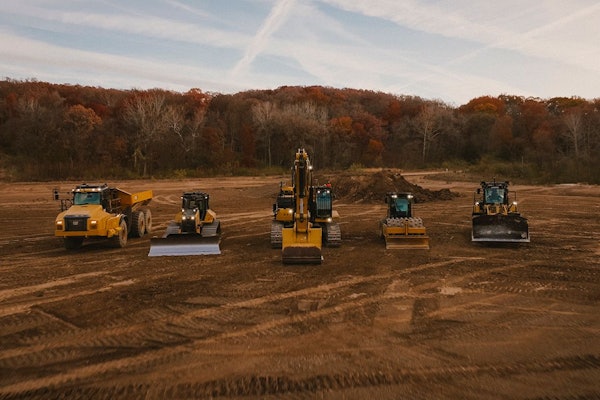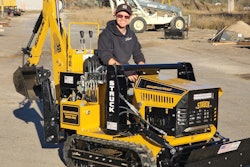As a construction contractor you don’t make money fixing equipment, monitoring wear rates and studying up on the latest engine oil specs. All these things are important and necessary to keep your fleets running and in good order, but you have to ask yourself if these activities would be better performed by someone outside your company so you can concentrate on what you do best.
What a lot of contractors have begun to realize is that dealers, vendors and even independent service reps are offering a growing menu of services that are designed to take non-core activities off your plate. Sometimes these people are called service reps or product sales and support representatives (PSSRs). They go by a lot of different names. But one thing is certain: the good ones can be a huge asset to your business.
We asked some experts in this field to identify what it takes to be an outstanding PSSR and how contractors can work with their reps to get the best possible service and support.
Focusing on core competencies
“A contractor is not in the machine business,” says Dick Schaefer, senior product manager at Komatsu. “He is in the hole-digging, street-paving, sewer-pipe or site-prep business. So my PSSR’s job is to go in there and say to the contractor: ‘You worry about selling the hole you’re digging. Let me worry about your machine.'”
To do this though, the PSSR needs to know the contractor’s business almost as well as the contractor himself. “The contractor doesn’t want a parts salesman,” Schaefer says. “The contractor wants the PSSR to know his business. The PSSR has to build credibility. Once he does that, the machine owner is going to look at him as a true asset, as a counselor to him. What I advocate for my people is to be the unpaid employees of that contractor.”
One of the most critical components for a PSSR to manage on earthmoving fleets is the undercarriages on steel track machines. Schaeffer recommends his PSSRs visit contractors’ jobsites and measure these at least two to three times during the undercarriage lifecycle. “Nobody is going to get rich doing undercarriage management,” he says. “But the reason the PSSR is going out is so when that undercarriage needs to be changed we get the deal. Then we might get a shot at fixing some of the other things on the machine as well.”
And when it comes time to turn the bushings or work on the machine, Schaeffer says the best PSSRs will already have everything scheduled down to the minute. “He’s prepared with transportation and has the parts available. Based on the wear rate, he knows two months ahead of time when it’s going to be ready for a turning. The contractor isn’t going to have to worry about getting the transportation or scheduling the chain press. He can concentrate on that hole he’s digging.”
More than just a supplier, Deckman Oil offered to help tear down and analyze the wear rates on this high-hours engine to prove to the customer the value of a premium grade of oil.
Partnering with a lube supplier
Deckman Oil is a small, family-owned business in western New York state that has been selling Kendall lubricants and services to the Dolomite Products division of the Dolomite Group quarries for more than 20 years. Even after Dolomite went to a national accounts plan, the partnership between the two was so strong that Dolomite’s equipment managers insisted the company stick with Deckman, the local vendor.
Pete Deckman, who joined his family’s business in 1986, calls on Dolomite and says the key to that relationship is the value-added service. “Anybody can sell products and sell on price,” he says. “Anybody can read tanks and kick drums, but a true consultant is tuned into the customer’s needs.”
For Deckman, being a good consultant works on two levels. First, he takes care of the customer’s immediate and obvious needs: supplying bulk lubricants, providing oil storage and dispensing equipment and staying on top of the contractor’s oil analysis program. Second, he communicates his insider’s knowledge of the changes taking place in the equipment and lube industries to make sure his client’s take full advantage of the technology available.
In the past few years, the designs of diesel engines have changed radically to meet stringent EPA emissions regulations and the specs on lube oils have likewise undergone rapid change. Educating his customers on what this means in their day-to-day operations is a key part of his job, Deckman says.
“We’ve grown from getting a little bit of knowledge from them to hosting a major seminar with them right here in our shop,” says Don Hosenfeld, who works for Dolomite Products as equipment supervisor and manages a shop of nine mechanics and three welder-fabricators.
In that seminar, which Deckman organized, Dolomite’s service techs tore down a 16,000-hour Caterpillar 3406E wheel loader engine to see how a new formulation, Kendall’s Super-D engine oil, and extended drain intervals would affect internal wear. Along with experts brought in from ConocoPhillips, the attendees examined the disassembled engine for evidence of sludge and varnish, ring wear and the integrity of the cross hatching honed into the liners.
“We gained quite a bit of knowledge from it,” says Hosenfeld. “It was in better shape than we thought it would be, even after 16,000 hours, which is normally when we would rebuild.”
A good service rep will have everything in the shop lined up and ready to go to work on your machine the moment it comes in.
Insider knowledge
In addition to valuing projects like the engine teardown, Hosenfeld says he appreciates service reps who keep him up to speed on changes in their industries. When his Caterpillar rep informed him about a pending steel price increase that would soon boost the cost of wear parts, Hosenfeld was able to place an advance order and save some money.
Professional courtesy is high on Hosenfeld’s list. “It’s best to get to the point because my time is limited,” he says. “I have to see a lot of people in the week and I have a lot of things to do. Keep it precise, let us know what’s going on, the pluses and minuses of what you’re trying to sell, and we’ll make the decision from there.”
Honesty is also essential. “You may be able to slide something by us once or twice, but you won’t do it anymore after that,” Hosenfeld says. “When people see they’re not getting the business, there’s usually a reason why. We’re looking for people we can be comfortable with and rely on, and people who will give us their attention when we really need it.”






